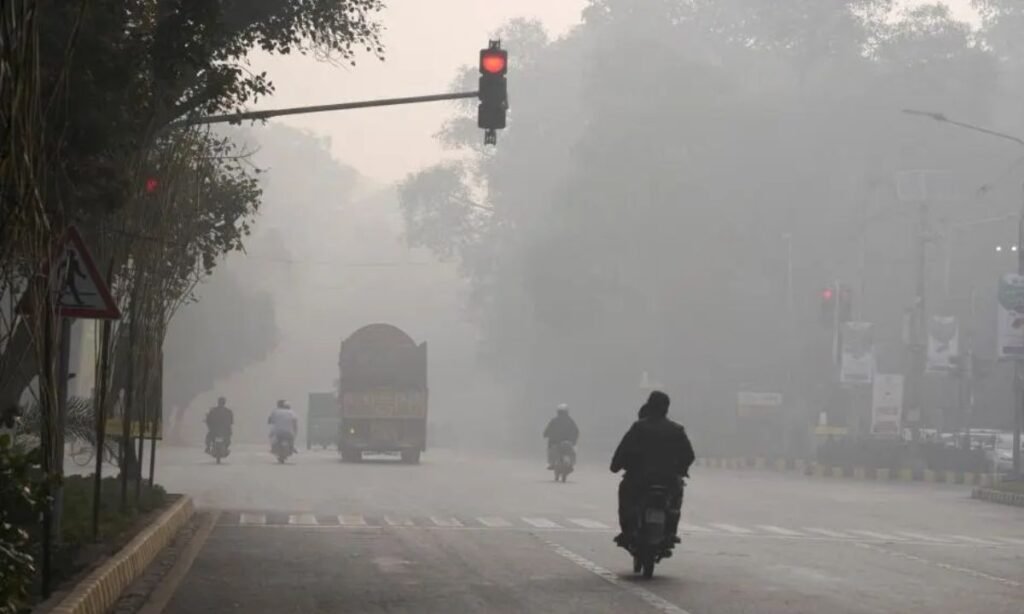IQAir Reveals Most Polluted City of Pakistan

The city of Lahore continues to face worsening air pollution, with its Air Quality Index (AQI) reaching 264, a level that falls in the very unhealthy category.
Data from the Swiss air monitoring firm IQAir shows that the city air is heavily polluted with PM2.5 particles measured at 189 micrograms per cubic meter.
These tiny particles can travel deep into human lungs and bloodstream, causing serious health problems and long term respiratory complications among city residents.
Health specialists warn that the existing air quality can cause breathing issues, heart problems, and eye irritation, especially among elderly people and children.
Citizens have been urged to minimize outdoor exposure and wear protective masks when stepping outside to reduce the risk of inhaling polluted air.
On October 14, IQAir ranked the provincial capital among the ten most polluted cities in the world, highlighting the city struggle with toxic air levels.
Read More: Orange Line Train And Metrobus Services Restored in Punjab
The city has stayed in the unhealthy range for nearly the entire past month, and forecasts show little improvement in the next several days.
Experts predict that the Air Quality Index will stay above 150 during the current week, keeping air conditions hazardous for the general public.
The Punjab government has introduced large scale smog cannons that spray ultra fine mist into the air to help neutralize airborne pollutants effectively.
Chief Minister Maryam Nawaz approved the deployment of smog cannons to provide temporary relief as winter smog season grows more severe across Lahore.
Every year, thick layers of smog cover Lahore during winter months, disrupting transportation, limiting visibility, and crowding hospitals with respiratory patients.
Authorities have urged citizens to support ongoing anti smog campaigns that include vehicle emission controls and strict action against agricultural crop burning.
Despite these efforts, experts insist that lasting improvement demands clean fuel adoption, urban redesign, and tougher industrial regulations to tackle Lahore pollution crisis.
